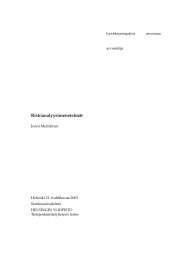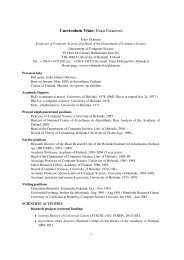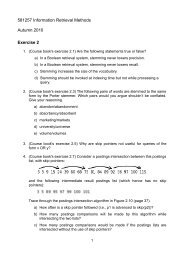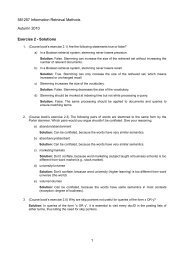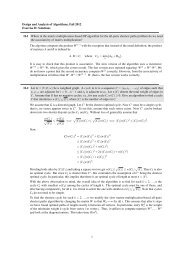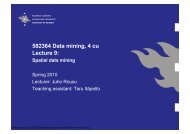Toni Sihvonen (order #92780) 62.142.248.1
Toni Sihvonen (order #92780) 62.142.248.1
Toni Sihvonen (order #92780) 62.142.248.1
Create successful ePaper yourself
Turn your PDF publications into a flip-book with our unique Google optimized e-Paper software.
<strong>Toni</strong> <strong>Sihvonen</strong> (<strong>order</strong> <strong>#92780</strong>) 6<br />
Armorica (Brittany): Britons seek aid from<br />
this Gaulish territory ruled by the sons of<br />
Magnus Maximus, but its kings are too busy<br />
fighting Alans, Burgundians, Attila, Aetius,<br />
and other enemies. Instead, Armorica accepts<br />
waves of British refugees in 410 and 460.<br />
With Aetius and Attila dead, the refugees of<br />
460 convince Aurelius and Uther to secure<br />
Britain lest the Saxons cross the Channel<br />
against them. After these leaders die, more<br />
Britons pour into Armorica fleeing the<br />
Saxons.<br />
Fifth Century Britain: Economy<br />
The departure of the Roman military and<br />
civil service robs Britain of soldiers, educators,<br />
jurists, scribes, clergy, and the tenders of<br />
roads, forts, granaries, treasuries, mines,<br />
aqueducts, levees, and sewers; moreover, the<br />
loss of these salaried professionals means the<br />
loss of their trade for merchants and artisans<br />
who depend upon it. Even more devastating<br />
is the loss of Roman currency. The Emperor’s<br />
coins were honored from Strangorre to Syria,<br />
enabling Britons to produce pottery, hardware,<br />
and textiles on a large scale for overseas<br />
trade. Post-Roman coins, issued by local<br />
barons, have only their weight-worth outside<br />
the barons’ domains. Even before the Saxon<br />
invasion, Romano-British towns suffer a<br />
depression severe enough to cause famine.<br />
Caledonia (North of the Mall): British tribes, settled by<br />
Rome between the Hadrianic and Antonine walls, will<br />
become Strangorre, Corre, Lothian, and Carloth (from<br />
which Vortigern removes Votadini warriors to the southwest).<br />
The once-decimated Picts have recovered their former<br />
strength. Allied under Drust mac Erp, they threaten<br />
Britain until his death in 458. A minor Pictish tribe, the<br />
Epidii, occupy coastlands that the Irish will seize as<br />
Dalriada.<br />
Hibernia (Ireland): From 400 to 440, the chieftains Niall<br />
Nine-Hostages (north) and Conall Corc (south) gain loot<br />
and prestige by raiding Britain. They then persecute<br />
weaker tribes, forcing the northern Ulaidh and the southern<br />
Deisi (“Mercenaries”) into Pictland and Cambria,<br />
respectively.<br />
But some Romano-Britons are glad to see the<br />
Romans leave. The great landholders in the<br />
countryside - a mixture of retired legionaries and<br />
Romanized native chiefs - can recruit their own soldiers,<br />
do not depend on international trade, and have always<br />
resented the Roman bureaucracy. Their profits are now<br />
safe from Roman taxes. Their workers are safe from<br />
Roman conscription, and more workers will soon arrive<br />
from the cash-starved cities. The landlords’ power grows<br />
as the cities decline, putting Britain on the road to feudalism.<br />
Fifth Century Britain: Religion<br />
Romano-Celtic Paganism: Although Christianity has long<br />
since become the official faith of the Empire, some Britons





